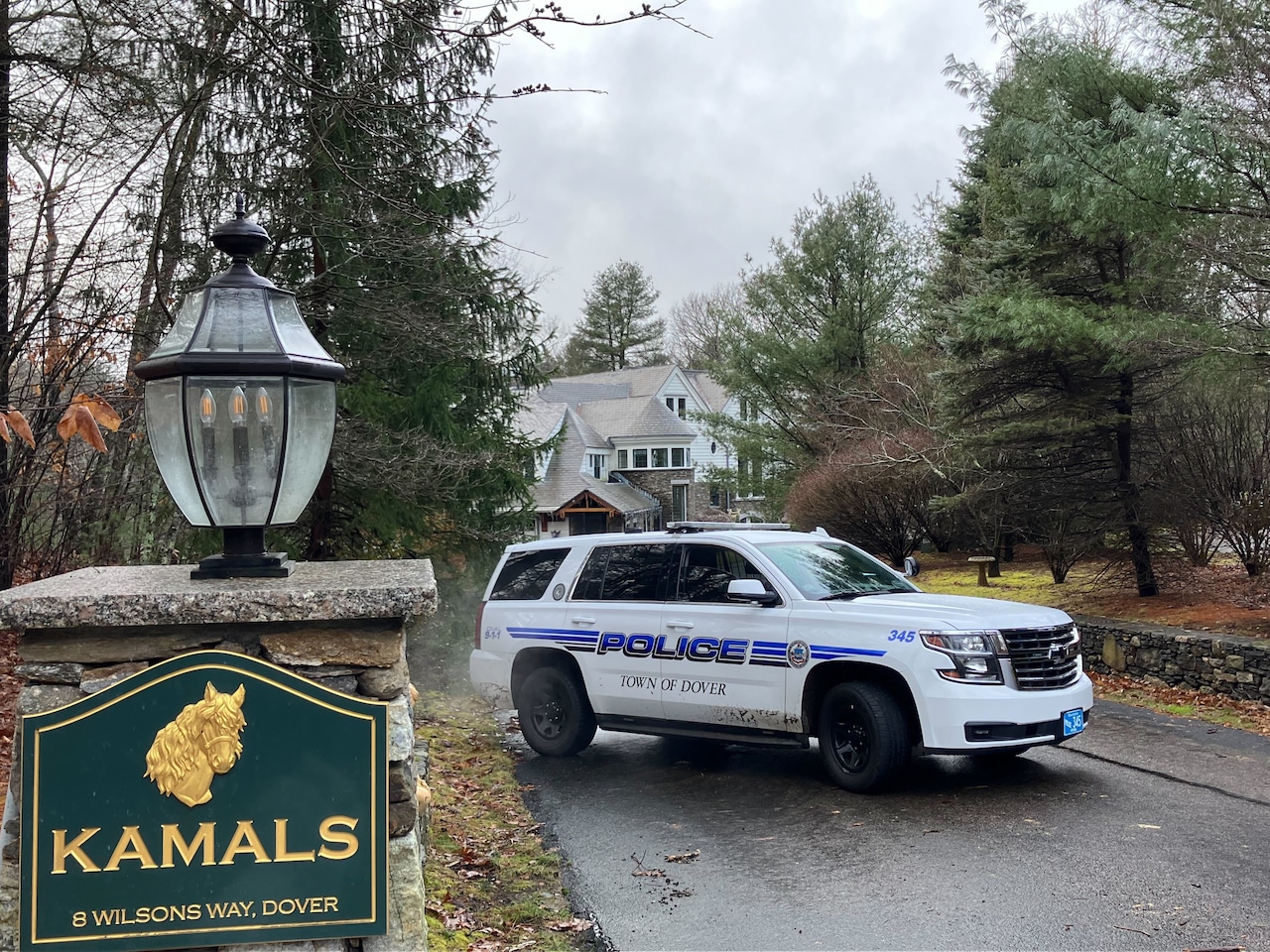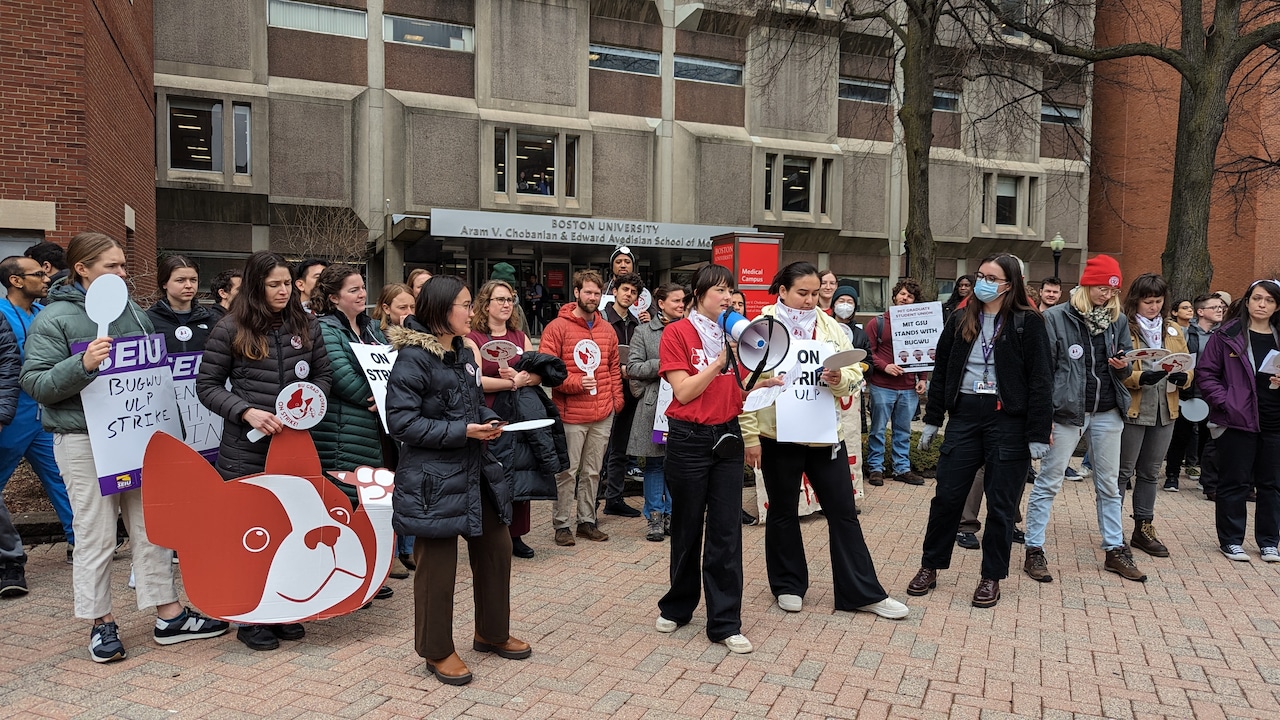
Editor’s note: This article contains mentions of domestic violence, murder and suicide.
A woman was shot and killed by her boyfriend in a Brockton home Tuesday morning, becoming the latest in a string of murder-suicides in Massachusetts that have received ample coverage over the past several years.
In 2023 alone, at least five fathers and boyfriends in Andover, Dover, Raynham, Millis and Marlborough shot and killed their families or partners and then themselves. Already this year, Massachusetts has had at least three murder-suicides in addition to the Brockton case — in Springfield, Boston and Haverhill. Additionally, a Cape Cod native was killed along with her friend in a murder-suicide in Florida last month.
In addition to how frequently these cases seem to occur — though experts say they are not increasing in frequency, what is perhaps most striking about them is what they don’t have in common. They happened in both the richest and poorest communities in the state and involved families of many different backgrounds and races.
These dissimilarities underscore what experts say is a fundamental truth about murder-suicides: that they happen in every community and in every type of family. Because of this, experts are trying to get more resources available for would-be victims and abusers to prevent these violent acts from happening.
On Monday, Gov. Maura Healey said her administration wants to fund a wide range of programs that would help the mentally ill. This would impact a range of related issues, she said, but it’s unclear if this funding would include initiatives that address domestic violence — which experts say is the root of murder-suicides.
“People of all races, ethnicities, income levels, everybody’s affected. So our administration wants to pump as much as we can into funding for mental health resources,” she said.
What it’s like for people impacted by murder-suicides
When 19-year-old Springfield resident Isabel Alcaide was killed in a murder-suicide in January, she left behind countless devastated family and friends, her uncle, Luis Daniel Rodriguez told MassLive previously.
“I just couldn’t believe … I just was waiting for somebody to wake me up,” he said.
After 57-year-old Dover resident Rakesh “Rick” Kamal killed his family and himself in December, reporting by MassLive, The Boston Globe and other outlets uncovered that he had been long hiding financial troubles. The revelation shocked his family and friends.
“I would never in my wildest dreams question what Rick is doing,” a family member told the Globe. “We put him on a pedestal so high you cannot imagine.”
Conversely, after 28-year-old Marlborough resident Kethlen DaRocha was killed by a man she was dating in a November murder-suicide, her good friend, Dayane Stefane Borges Lemos said through a translator that there were warning signs.
“He was really jealous. He was showing signs that he could be violent,” she said.
But after Springfield resident Victor Nieves killed a grandmother, 10-year-old child and a dog last summer, the Croteau family was left wondering why their neighbor — who had been so close to their family — would do such a thing.
“I’d ask him, ‘Why? Why the dog? Why Kim? Why the kids?’” the child’s uncle, Sean Weeman Adams said in a previous interview with MassLive. Adams even described Nieves as “a good person” who needed mental health treatment.
‘Behind closed doors’
Domestic violence experts agree that the best predictor of a domestic homicide is previous abuse. Oftentimes prior violence was never reported, and it eventually escalated to murder, Lassell University criminal justice professor and former county prosecutor Linda Bucci said.
“This can happen in, what appears to be to all of us, very successful, happy relationships,” she said. “We often don’t know what’s going on behind closed doors.”
In fact, on average, 20 people in the U.S. are physically abused by an intimate partner every minute, according to the National Coalition Against Domestic Violence.
The perpetrator may have even kept the abuse from coming to light through “coercive control,” Framingham State University Criminology Professor Xavier Guadalupe-Diaz said. This is when abusers isolate their victims through harmful means, such as micromanagement and gaslighting — effectively trapping them in the abusive situation.
“These abusers start to create this really insular dynamic where none of the problems leave the house,” he said.
This is also why the families and friends of domestic abuse victims often say they didn’t hear from their loved one much while the abuse was going on or didn’t hear about the abuse at all, Guadalupe-Diaz said.
The domestic abuse cycle
Domestic abuse typically occurs in a cycle, where the abuser lashes out against the victim in response to external stressors that may or may not involve the victim, experts agreed. These stressors often involve social or economic strain, Guadalupe-Diaz said.
“Folks feel a breakdown in the norms in their lives. Expectations about how they thought life would go, expectations of what they think they deserve, and then comparing that to what they’re getting out of life,” he said.
Following the abuse, the abuser will often apologize and show kindness to their victim, leading the victim to blame themselves until the abuse begins again, Bucci said.
Within an existing cycle, some factors may cause an abuser to cross the line into homicidal violence. Alcohol and drug abuse can sometimes cause the perpetrator to “go further” than before, experts said. Access to any weapon — especially a gun — also increases the likelihood that a domestic violence incident turns deadly, as well as the likelihood that a suicide follows.
“Having access to a mode of lethal violence makes it just as easy for them to perpetrate that against others as to perpetrate that on themselves,” Northeastern University criminology professor and psychologist Carlos Cuevas said.
A victim simply trying to leave the relationship can also cause the abuser to lash out more violently, Bucci said. The perpetrator may feel they are losing control of that person and try to reestablish it.
But while some domestic homicides are premeditated, experts agree that most aren’t. The abuser may not have even intended to kill the victim, but the violence in one instance ends up being severe enough to cause death, Cuevas said.
Societal pressure on men
Experts also agree that while most men aren’t domestic abusers, the vast majority of domestic abusers are men.
Over 90% of domestic homicide perpetrators are men, Guadalupe-Diaz said. Additionally, physical harm done by male domestic abusers tends to be more severe — even when physical strength is not a factor, such as when a gun is used, Cuevas said.
Many experts believe this gender disparity is a result of societal pressure on men to fulfill the traditional role of a provider and head of a family. Through “patriarchal socialization,” men are taught to solve problems with aggression and control the women and children in their families, Guadalupe-Diaz said.
This can lead to feelings possessiveness and jealousy, which often play a role in domestic abuse, he said. It can also cause the perpetrator to not only think they have the right to take the life of family members, but also that it might be the right course of action, Guadalupe-Diaz said.
“The perpetrator felt like they had failed the family and that they’re better off dead than living in the situation that was either going to happen or had been happening,” he said. “The family was devolving, and we see them wanting to eradicate the entire family.”
Suicide and gender
Bucci believes feelings of failure and loss may be why abusers often turn their violence on themselves after a domestic homicide. In fact, an inability to see the bigger picture or envision a better future are known factors with all suicide cases, Cuevas said.
“They’ve feel they’ve lost everything, and this is it,” Bucci said.
Cuevas added that there are some experts that believe the gender disparity among domestic abusers isn’t nearly as great as researchers have come to believe it is. They argue, among other reasons, that verbal and emotional abuse is under-considered by analysts, and that abuse can be bi-directional, meaning both parties can abuse one another.
Even so, domestic abuse committed by women is much more likely to be emotional and verbal, so even taking these factors into account, domestic homicide perpetrators would still mostly be men, Cuevas said.
He also cautioned that most domestic abuse statistics are derived from data that largely considers relationships between heterosexual, cisgender people, so they may not hold true for domestic abuse situations in the LGBTQ+ community.
Massachusetts law may make things worse
Massachusetts has a somewhat-unique domestic violence privacy law that experts say protects victims, but also abusers. The law mandates that records documenting domestic abuse — such as police reports and court cases — be kept confidential unless the victim authorizes their release. This is not the case in most other states where the law requires only that victims’ names be redacted, according to WBUR.
The intent of the law is to shield victims from consequences that can arise from reporting domestic abuse, such as blowback from family, friends and their abuser, Cuevas said.
“Working with survivors, for a lot of them, one of their concerns about coming forward and reporting their abuse is ‘who else is going to know? Is it going to be retaliation?’” he said.
Some victims, as well as those close to them, will decide they don’t want to press charges or cooperate with investigators — even in situations where they were the ones who got law enforcement involved, Bucci said. This could be due to a fear that the family breadwinner may be removed from the household, or simply because they still love their abuser and don’t want them to go to jail.
Victims may also fear unwanted press and public attention, as well as having to discuss personal problems with people outside the situation, Bucci said. They may feel embarrassed and have a “what will the neighbors think” mentality.
In cases where victims do not want law enforcement involved and the public is not made aware of the danger posed by an abuser, Massachusetts’ domestic violence privacy law can allow abusers to escape all forms of accountability, Bucci said.
Additionally, a 2022 WBUR investigation discovered that the law sometimes makes it difficult for victims to access their own case files, which can impede their ability to take further legal action. The radio news station also found that law enforcement agencies have, at times, taken advantage of the law and successfully hidden instances where they mishandled a case.
But, in effect, the law still places power in the hands of domestic abuse victims by leaving it up to them to decide whether their case should be prosecuted or publicized, Bucci said.
A bill that would change this law was introduced in the Massachusetts Legislature last year, but in February, a study order was created for the bill, which means it likely won’t be voted on this legislative session.
How we can prevent murder-suicides
One major way state and federal officials can help prevent murder-suicides is by making resources for domestic abuse victims more available and accessible, Cuevas said. They could do this by devoting more money to existing programs or by creating new ones.
Bucci recommends that people facing domestic violence have a safety plan, including a place they can go and potentially take their children if they need to. Additionally, family and friends should make themselves available as part of a support system if they become aware that their loved one is facing abuse, she said.
If your loved one’s partner seems possessive or controlling, your loved one often explains their situation from their partner’s perspective or your loved one stops engaging socially, they may be facing domestic abuse, Guadalupe-Diaz said. It could be time to reach out.
But experts agreed that the most important thing we can do as a society to prevent murder-suicides is making sure that people facing domestic violence know what resources are available to them.
Massachusetts has a toll-free, 24/7 domestic abuse hotline that can be reached at 877-785-2020. You can also find more victim resources on the state’s website.






